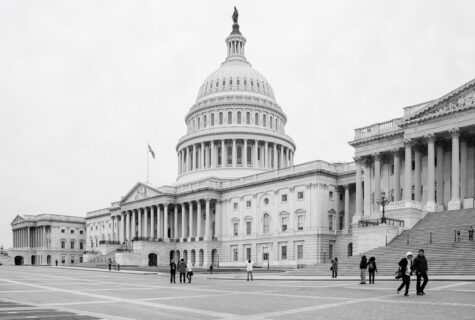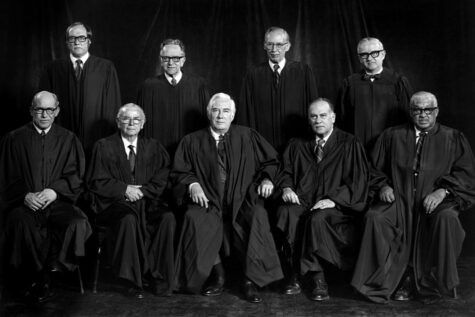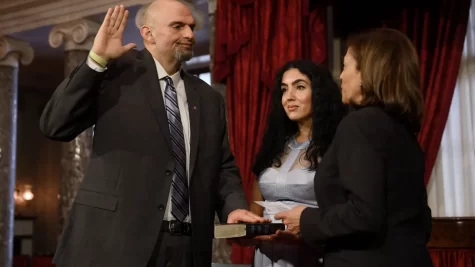Infrastructure bills cause stalls and negotiations in Congress
Members of the United States Congress recently debated new infrastructure in Washington D.C. According to the Biden Administration, the infrastructure is split between two bills, the $1.2 trillion Bipartisan Infrastructure Investment and Jobs Act and the $3.5 trillion Build Back Better Act. Both pieces of legislation are awaiting their final approval from the House of Representatives, however stalling has played a major part in the process.
The framework passed through the U.S Senate in early August of 2021, although the House of Representatives postponed voting multiple times. These complications are the result of failed negotiations over the Build Back Better Act.
According to Business Insider, Representative Alexandria Ocasio-Cortez leads progressives who argue they will not pass the Bipartisan bill until enough votes for the Build Back Better Act are secured. This strategy has little success thus far, as moderates and conservatives are worried the bill will bring more power to the government resulting in less choice for the people.
Democrats are calling this bill “human infrastructure”. It focuses on free child care and preschool for those under the age of six, paid family and medical leave, two years of free community college, and establishing clean energy.
President Biden promised that no American with a salary under $400k a year will pay a penny in taxes for either of the infrastructure projects. This brought relief to citizens, and will likely raise the approval rate of the Build Back Better Act. At the latest press release broadcasted by C-SPAN, the President stated “it’s a blue collar blueprint for how we restore America’s jobs.”
Republican Senator, Mitt Romney was an active supporter of the bipartisan bill, he said “I love this bill; the other I can not stand.” He also included the numerous benefits the bill would bring to Utah on his official website, Mitt Romney, US Senator for Utah. Moderate Democrats and Republicans are agreeing that “the other bill” or the Build Back Better Act would be spending money the United States does not have.
Another worry stated by Congress is that the “human infrastructure” bill expands from what infrastructure usually entails ; roads, bridges and water systems are examples of traditional infrastructure and are included in the Bipartisan Investment and Jobs Act. Free community college and childcare are not considered physical infrastructure.
GOP Congressman and chairman of the Republican Study Committee (RSC), Jim Banks released a document on RSC, including the less advertised pieces of the $3.5 trillion being spent. The RSC writes “They have played hide the ball with the bill text so as not to tip off the public as to what they are putting in their bills. Then, they bring it to the floor and tout some poll numbers and scare their members into voting for it.”
According to United States Congressman Jim Banks, his official website, Representative Banks mentions hidden parts of the framework, including giving unions more control, driving up costs on utility bills for families, and increasing taxes at every income level.
Speaker Nancy Pelosi set the deadline for the Bipartisan Infrastructure Investment and Jobs Act as October 31st, 2021, included on Nancy Pelosi’s Speaker of the House site. If negotiations do not resolve, another stall is likely.

Two infrastructure projects passed through the United States Senate in early August 2021, and have been waiting for the final approval from the House of the Representatives. Photo taken by Patrick Thibodeau/ (CC BY 2.0 )

Natalie Colarossi is a senior and an Editor-in-chief for the Broadcaster. Natalie competes for on HHS Women’s Swim Team and enjoys writing, cooking,...


